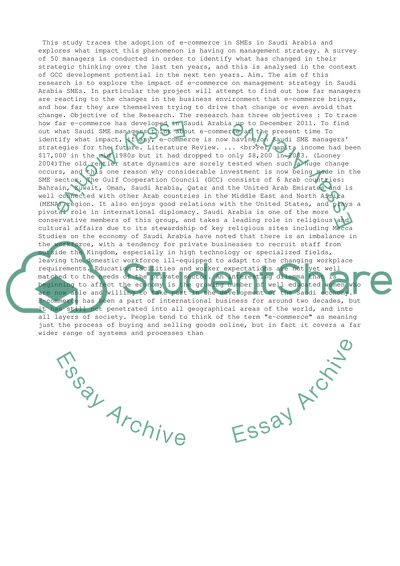Cite this document
(“Exploring the impact of e-commerce adoption on management strategy in Research Proposal”, n.d.)
Retrieved from https://studentshare.org/management/1437198-exploring-the-impact-of-e-commerce-adoption-on
Retrieved from https://studentshare.org/management/1437198-exploring-the-impact-of-e-commerce-adoption-on
(Exploring the Impact of E-Commerce Adoption on Management Strategy in Research Proposal)
https://studentshare.org/management/1437198-exploring-the-impact-of-e-commerce-adoption-on.
https://studentshare.org/management/1437198-exploring-the-impact-of-e-commerce-adoption-on.
“Exploring the Impact of E-Commerce Adoption on Management Strategy in Research Proposal”, n.d. https://studentshare.org/management/1437198-exploring-the-impact-of-e-commerce-adoption-on.


